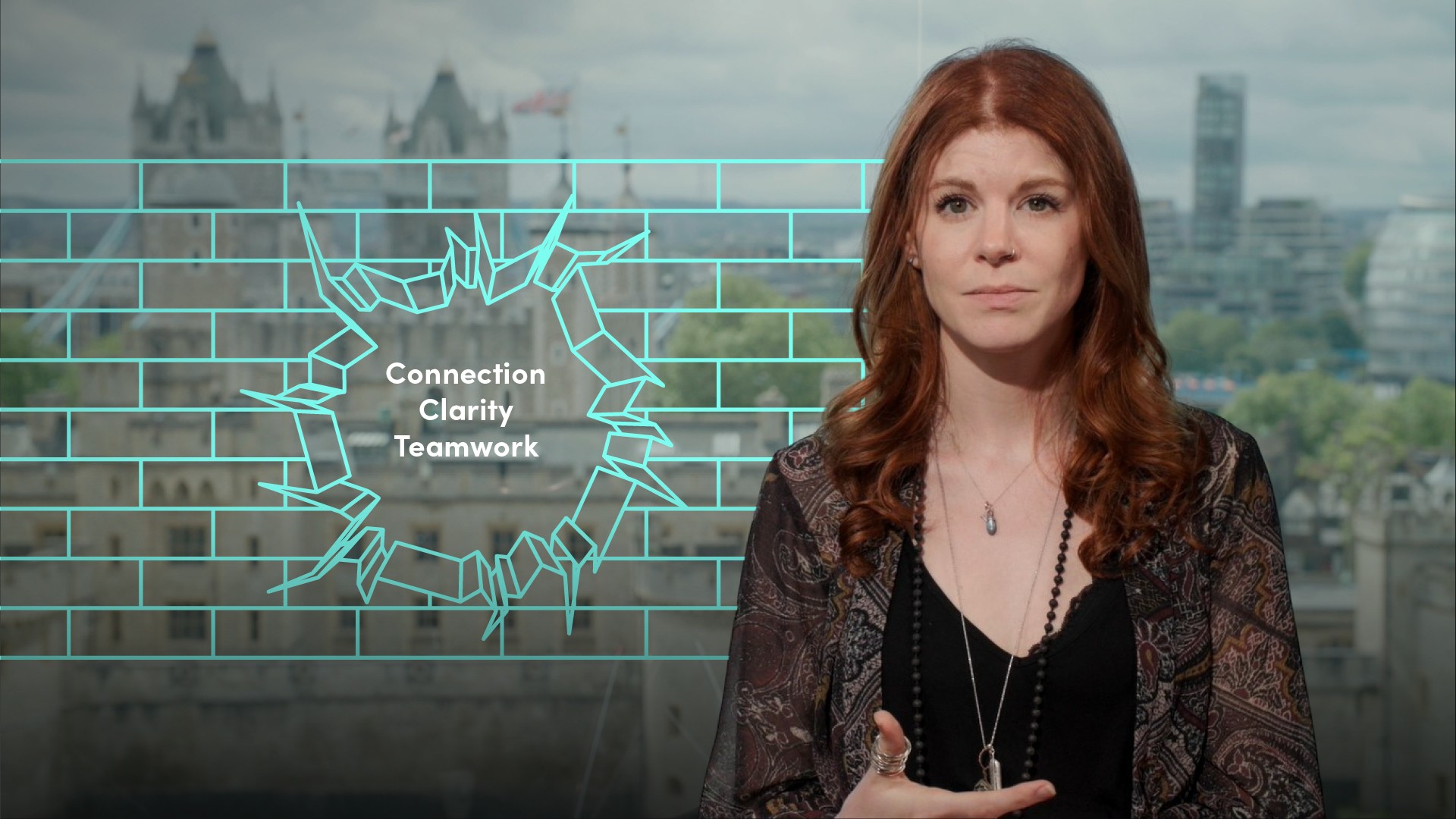
A Framework for Clear Conversations

Vix Anderton
Wellness & productivity specialist
Conflict can be a positive force in relationships, driving creativity and good decision-making.
Conflict can be a positive force in relationships, driving creativity and good decision-making.
Subscribe to watch
Access this and all of the content on our platform by signing up for a 7-day free trial.

A Framework for Clear Conversations
4 mins 14 secs
Key learning objectives:
How can conflict be positive in our relationships?
How can I transform a challenging conversation into a constructive one?
Overview:
Conflict can be a positive force in relationships, driving creativity and good decision-making.
Subscribe to watch
Access this and all of the content on our platform by signing up for a 7-day free trial.
When we have the right skills around constructive conversations, we can learn to transform conflict into teamwork, by knowing each other better. Conflict can transform into creativity because it points to those places that need oiling. It helps us know our own boundaries, wants and needs and to understand those same things in the people around us. Ultimately, it helps build connections by clearing out those things that might otherwise fester and affect our relationships in a negative way.
Once we begin to view conflict as a doorway to greater connection, clarity, and teamwork, a simple yet monumental shift occurs. The internal messages of “This should not be happening” and “Who is to blame?” change to “What is happening here” and “what growth, connection, or clarity can come out of handling this with skill?”
This is a framework that you can use to transform conflict into connection:
C - Consent and Context. As we explored in a previous chapter, share your WHY and what you WANT from the conversation, HOW you want the conversation to go and is NOW a good time, before you share the WHAT. The power of making this explicit is that we can get people’s buy-in to the conversation. Of course, you have to be prepared for the person to say no too!
L - Lead with Data. Share your experience. Start with objective facts about the situation and what you observed before sharing the impact and how you feel. Remember to use I statements.
E - Explore. What is the other person’s perspective? How do they feel? Remember those superhero listening skills from video 2 – reflecting, sharing impact and so on. This could actually be several rounds of listening and sharing. Ask questions like “How does this sit with you?” , “How did this situation feel to you?”, “Can you tell me what you were thinking?”, or “Is there more you’d like to share?”
Sometimes, their perspective might be difficult to hear so don’t be afraid to ask them to slow down or to take a break if you need to re-center. There is no rush when it comes to listening and understanding. It’s important to remember that listening to someone else’s point of view doesn’t mean you’re making them right and you wrong. This stage is about seeking to understand how the world looks from where they stand.
A - Agreement. Where is the overlap in your perspectives? Where can you agree? Remember, prioritise connection over content – if all you care about is being right, then you’re competing, not collaborating. Look for a win-win scenario and find the common ground.
R - Resolution. What are the next steps? “What would you like to do next?” “When shall we review this?” or “is there anything you’d like from me?”. Include some Recognition or appreciation here too.
Subscribe to watch
Access this and all of the content on our platform by signing up for a 7-day free trial.

Vix Anderton
There are no available Videos from "Vix Anderton"





























